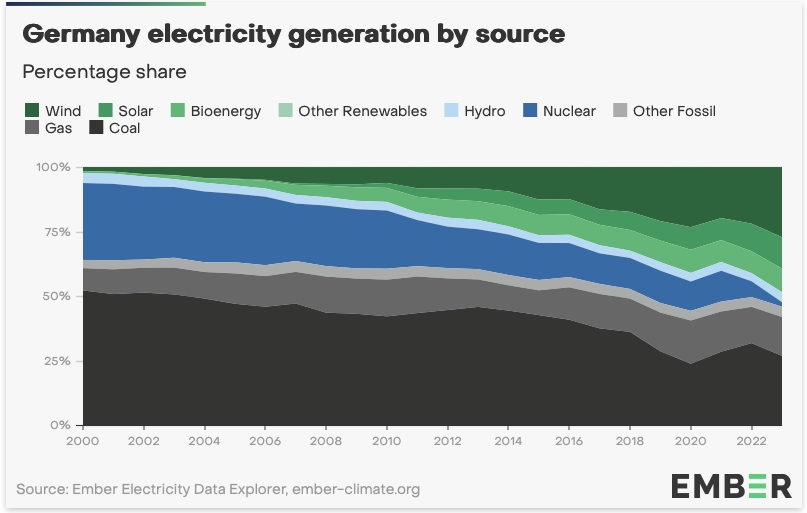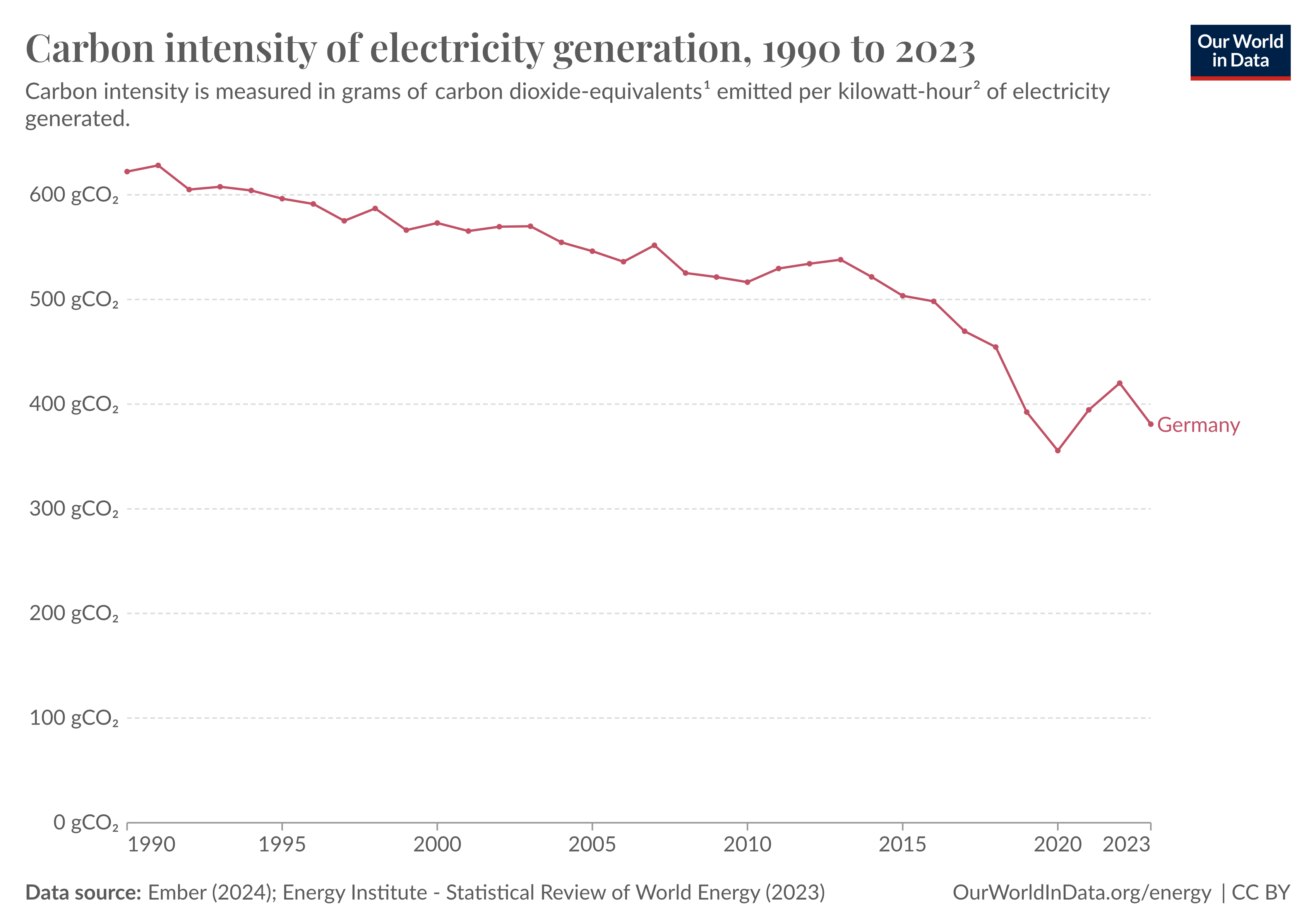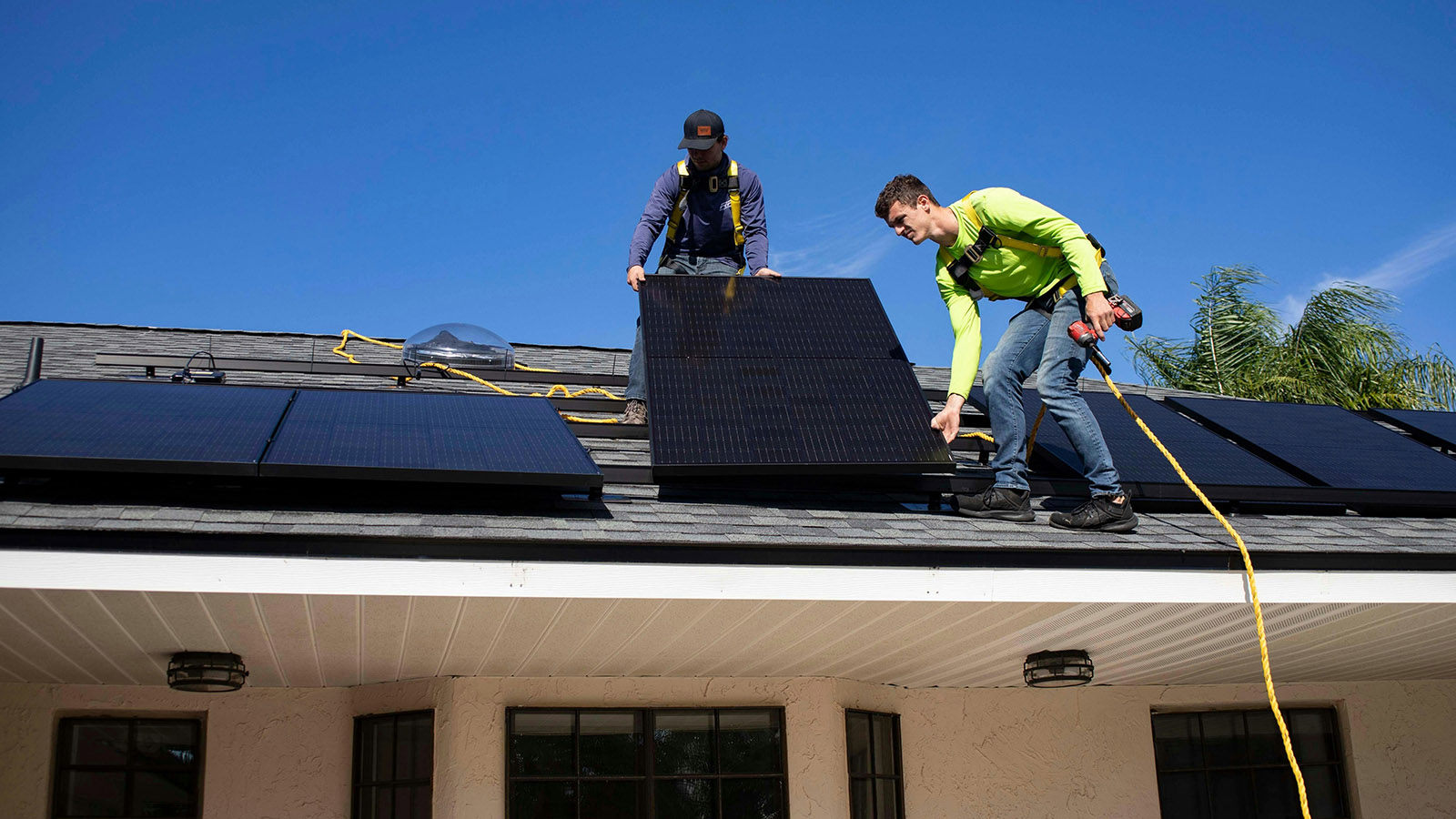Germany's Energiewende, or energy transition, is one of the most ambitious and successful renewable energy initiatives in the world. This movement has transformed Germany's energy landscape, reducing reliance on fossil fuels, while promoting the use of sustainable energy sources such as wind, solar and biomass. As a result, Germany has positioned itself as a leader in renewable energy, albeit with ongoing challenges and areas for improvement.
This article reviews key aspects of Germany's journey to renewable energy leadership, focusing on the historical development of the Energiewende, its significant achievements, the job market, and practical advice for those looking to pursue a career in this thriving sector.
The Origins of Energiewende

The concept of Energiewende, rooted in the late 20th century, gained traction through environmental activism and strategic vision for energy independence. Events like the 1973 oil crisis and the 1986 Chernobyl nuclear disaster highlighted the vulnerabilities associated with fossil fuels and nuclear energy, garnering support for alternatives. The transition has not been without resistance and logistical challenges, which have occasionally slowed momentum.
The term "Energiewende" itself first appeared in a 1980 study published by the Institute for Applied Ecology (Öko-Institut), and outlined a pathway for transitioning away from nuclear and fossil fuels towards renewable energy. This early vision laid the groundwork for the policy frameworks and societal shifts that would follow in the decades that followed, right up to the present day.
Read a (very) brief timeline of Germany's Energiewende here.
Government Policies and Initiatives
Germany's commitment to renewable energy was strengthened by a series of progressive government policies. The key element of these efforts is the Renewable Energy Sources Act (Erneuerbare-Energien-Gesetz, EEG), which was passed in 2000. This framework provided financial incentives that encouraged investment in renewable projects. Nevertheless, these subsidies have sparked debate about their long-term sustainability and economic impact.
The nuclear phase-out decided post-Fukushima further accelerated the shift, but also required careful balancing of energy supply and infrastructure upgrades.
Germany's climate policies, aligned with the European Union's climate goals, have set ambitious targets for reducing greenhouse gas emissions. Under the Climate Action Programme 2030 and the new Climate Action Act (Klimaschutzgesetz) the German government has made a binding undertaking to reduce greenhouse gas emissions by 55 per cent by 2030 [compared to 1990 levels].
Despite the impressive advancements, Energiewende has not been without its challenges. Financial constraints and policy inconsistencies have sometimes slowed progress. Critics argue that the cost burden of subsidies and tariffs may be unsustainable in the long run.
Achievements of Germany’s Renewable Energy Transition
Germany has significantly expanded its renewable energy capacity over the past two decades, with sources contributing over 52% of electricity generation in 2023. Wind energy accounted for nearly 28%, and solar PV systems 12%. Despite these achievements, the country continues to face challenges in ensuring grid stability and managing the intermittent nature of renewables.

Fig. 1 - Germany electricity generation by source. Source: https://ember-climate.org/data/data-tools/data-explorer/
The installation of onshore wind turbines has increased significantly since ver the recent years, especially in the northern regions, which enjoy favourable wind conditions. Offshore wind farms in the North Sea and the Baltic Sea also expanded.
Solar energy is being widely adopted in Germany, driven by the falling costs of PV panels, by feed-in tariffs, and by common sense. Germany's rooftops are dotted with solar panels, making solar power a common feature of urban and rural landscapes. Biomass, hydropower and geothermal energy, although smaller, contribute further to the diversity and resilience of Germany's renewable energy mix.

Fig. 2 - Carbon intensity of electricity generation, 1990 to 2023. Source: Ember (2024); Energy Institute - Statistical Review of World Energy (2023)
Innovations and Infrastructure Development
In addition to policy, Germany's leadership in renewable energy is also driven by significant investments in technological innovation and infrastructure development. Following are some examples of latest tech innovations being developed by German companies:
Smart Grids
Germany is at the forefront of the development of smart grids, which are essential for efficient management of electricity flows and integration of renewable energy sources. Siemens and E.ON are very active in this area, pioneering digital solutions for grid management, enabling better demand response and reliable energy distribution from unreliable sources.
Energy Storage Solutions
Energy storage is essential for balancing supply and demand in a renewables-dominated grid, and Germany is home to major innovators in this area as well. Sonnen, a leader in residential energy storage, offers the SonnenBatterie, which allows households to store excess energy (30-60 kWh) for later use. TESVOLT focuses on commercial and industrial storage solutions, providing high-performance battery systems that support grid stability and energy security.
There’s more: another recent project, the BCP Battery Holding and TransnetBW's large-scale 60–250MW battery storage systems with capacities of up to 250 MWh, reflect the rapid growth and demand for this technology.
Wind Energy Innovations
Germany continues to innovate in wind energy, both onshore and offshore. Enercon from Aurich, in Lower Saxony have recently introduced the E-160 EP5 wind turbine, one of the largest onshore wind turbines with a rotor diameter of 160 metres and a rated output of 5.5 MW. The new design is based on innovative converter technology, eliminates the need for a steel frame, streamlining production processes.
Nordex is another wind turbine manufacturer making a significant contribution. Their Delta4000 series includes turbines optimised for different wind conditions, increasing performance and further reducing the cost of wind energy.
Fig. 3 - Nordex Delta4000
Solar Energy Innovations
In 2023, Germany continued to see significant investments in photovoltaics technology. For example, scientists and engineers at the Fraunhofer Institute for Solar Energy Systems in Freiburg work on perovskite solar cells. These new components combine advantageous material properties, low-cost production methods, and the flexibility of thin-film technology, to deliver increase the efficiency while reducing costs.
Infrastructure Development
Germany's commitment to infrastructure development includes the expansion and modernisation of its electricity grid. Projects such as SuedLink and SuedOstLink transport renewable energy from wind-rich northern regions to industrial areas in the south, ensuring reliable energy supply. The integration of electric vehicles (EVs) into the energy system is supported by a growing network of charging stations, with companies progressively expanding EV infrastructure to enable the ongoing transition to electric mobility.
Germany's focus on technological innovation and infrastructure development has been key to its renewable energy success.
Impact on the Job Market
The Energiewende has had a profound impact on Germany’s job market. As of 2024, the renewable energy industry employs approximately 387,000 people, up from 309,000 in 2019. These employment opportunities span across various stages of the value chain, including research and development, manufacturing, and maintenance.
The transition to renewable energy has also led to job creation in sectors linked to energy production, such as energy efficiency services, grid infrastructure development, and electric mobility. This diversification brought stability and resilience to the job market, reducing dependency on traditional fossil fuel industries, but also demands adaptation.
Key Sectors and Job Roles
The following sectors within the renewable energy industry are largely responsible for driving this trend:
- Wind Energy: The onshore and offshore wind energy sectors are major employers. Jobs in wind range from wind turbine technicians and engineers to project managers and environmental consultants. Germany's leadership in wind energy technology and large-scale wind farm projects creates a constant demand for skilled professionals.
- Solar Energy: The solar PV sector offers many job opportunities, particularly in installation, maintenance and system design. There are plenty of office jobs too in the solar PV sector.
- Smart Grids and Energy Storage: The integration of smart grid technologies and energy storage systems has opened up sometimes entirely new roles: grid operators, hardware and software specialists and battery technology experts.
- Biomass and Bioenergy: This sector includes jobs in biomass plant operation, biogas production and biofuel development.
- Energy Efficiency: Professionals in this sector work to improve the energy performance of buildings, industrial processes and appliances. Roles include energy auditors, efficiency consultants and engineers specialising in energy-saving technologies.
How to Get Started in the Renewable Energy Sector
Education and Training
Entering the renewable energy sector in Germany usually requires specific training. Universities and technical institutes offer specialised programmes in renewable energy, environmental engineering and related fields. Degrees in mechanical, electrical and civil engineering are also highly valued in the clean energy industry as they provide the technical knowledge and skills applicable in many roles.
Programmes focusing on renewable energy systems, sustainable energy technologies and environmental sciences are increasingly available at German universities and are tailored to meet the growing demand for expertise in this area. But breaking into the field can still be competitive and challenging!
Many people enter the industry through vocational training and apprenticeships. Germany's dual education system combines classroom learning with hands-on experience, allowing students to gain practical skills while earning their qualifications.
Certifications and Professional Development
Certification and continuing professional development can be tools for maintaining a competitive edge in the renewable energy job market. Various certifications, such as those offered by the German Renewable Energy Federation (BEE) and the German Solar Industry Association (BSW-Solar), validate expertise and compliance with industry standards.
Networking and Industry Events
Joining trade associations, such as the German Renewable Energy Federation (BEE) or the German Wind Energy Association (BWE), provides access to a wealth of resources, including job boards, industry reports and networking events.

Fig. 4 - WindEnergy Hamburg 2022
Attending conferences, trade fairs and industry workshops is another effective way to network and gain exposure to the sector. Notable events include the Intersolar Europe conference, the WindEnergy Hamburg expo and the Energy Storage Europe summit. These events attract key players from across the industry and provide opportunities to meet potential employers, partners and mentors. Follow our newsletter to find out more about these events!
Practical Experience and Internships
Many companies offer internship programmes that enable hands-on experience in various aspects of renewable energy projects. Internships can boost your CV, but more importantly they can help you build a network and understand the practicalities of working in the industry.
Contributing to Germany’s Energy Transition
Working in Germany’s renewable energy sector allows professionals to make an impact both locally and globally. Locally, the transition to clean energy sources helps improve air quality, reduce dependence on (imported) fossil fuels, and create jobs! The transition also stimulates economic growth by attracting investments and energising related industries.
On a global scale, Germany leads by example. By demonstrating that a large, industrialised nation, that is already tackling its share of complex problems, can successfully continue its transition to renewable energy, Germany inspires other countries to undertake similar efforts.
Professionals in Germany’s renewable energy sector contribute to this leadership by developing and implementing technologies and practices that can be replicated worldwide.
Article by Jaroslav Holub
Published on May 23, 2024
Share this blog post with your folks, and help them find a career to be proud of.



